As a photographer living in Vietnam for almost 20 years and co-owner of a Vietnamese and American–owned production company, I’ve made some mistakes, seen a lot of foreign companies and crews make more, and I’ve learned a few things.
So before you plan your big video production or commercial photography shoot in Vietnam — whether it’s for a hotel or resort, a corporate brand, or a manufacturing client — you should know a few things.
1. You Need Locals
I see teams make the mistake of flying in with their producer, and maybe they hire a local fixer or translator, but they skip out on hiring a local production company to assist with the shoot. This can be a huge mistake for many reasons.
You’ll need more than translation — you’ll need local know-how on logistics, pricing in the local market, knowledge of skilled gaffers and stylists, cultural nuances, permits, and dealing with local authorities.
Consider this: we have a full-time staff of Vietnamese producers, and even when we travel to a different province, we work with locals from that province. So imagine your team coming from an entirely different country with a completely different culture.
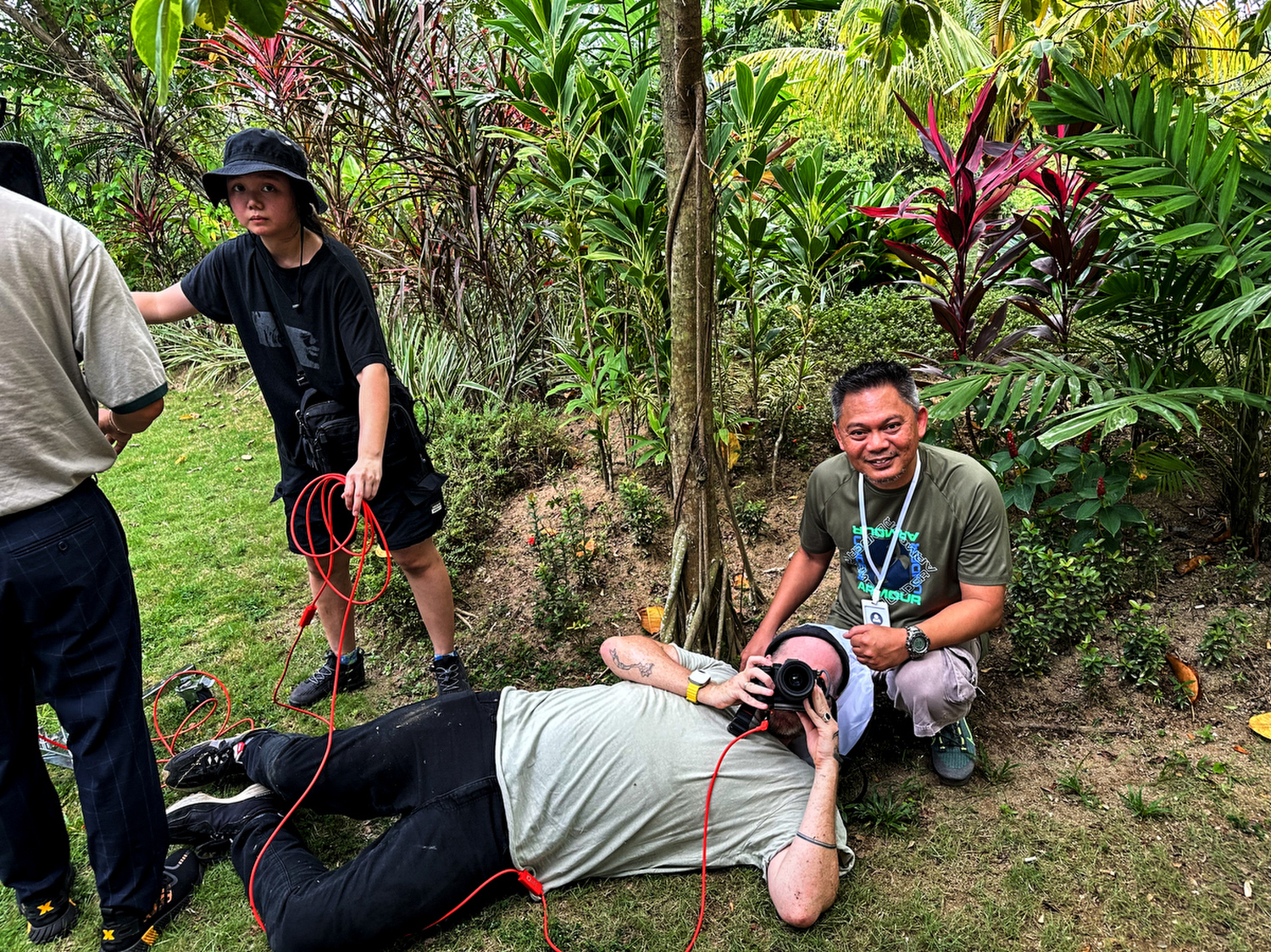
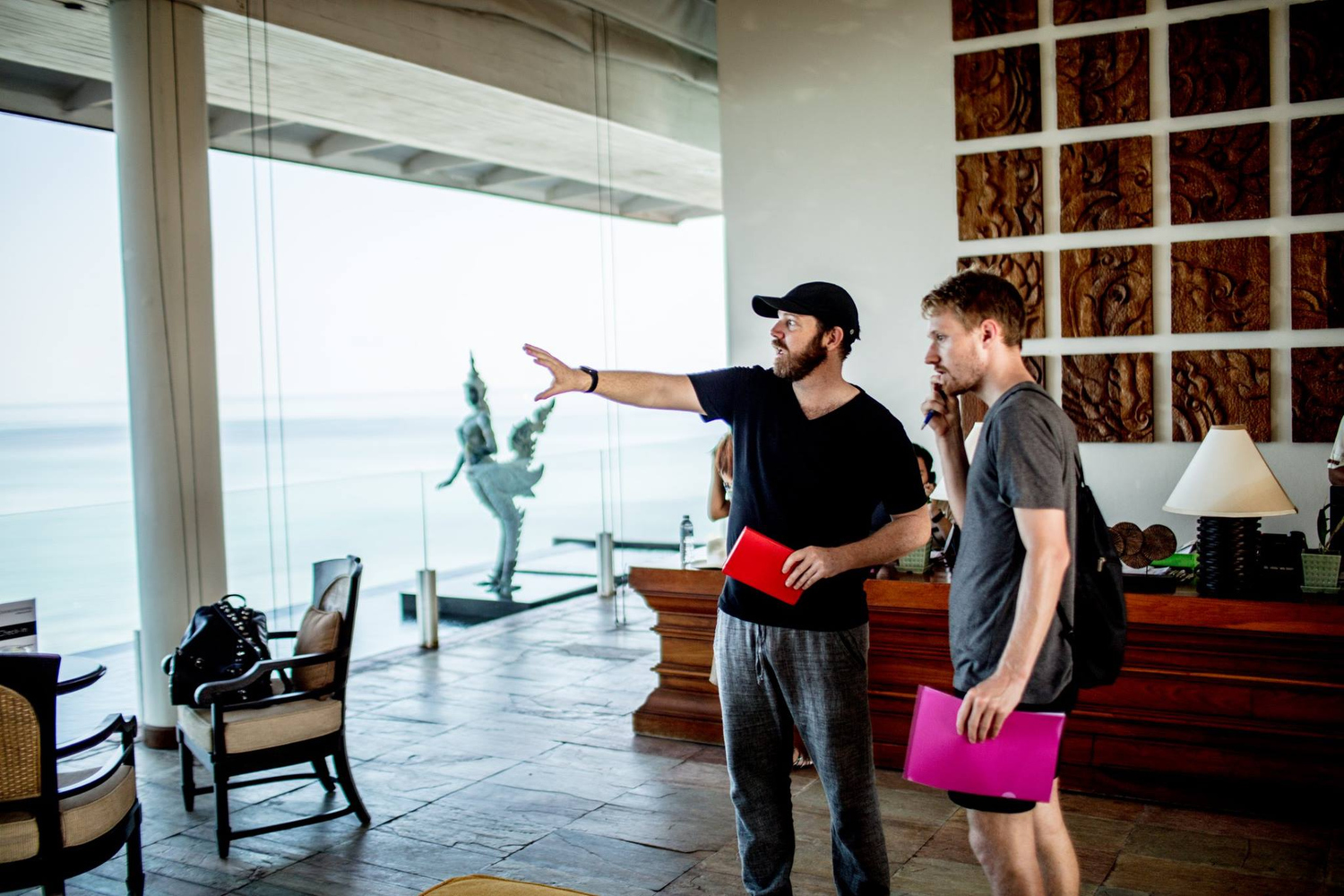
2. Cheaper Maybe, But Not Cheap
We hear this a lot from foreign companies and agencies thinking the food should be $2 a meal because they read somewhere or visited once and had a $2 bowl of pho. Yes, you can get pho cheap, but not every Vietnamese person eats pho or street food three times a day. Consider America — yes, you can buy a meal at McDonald’s for a few bucks, but will the crew want to, or should they be forced to, eat that every day for three meals?
The same goes for people and their time. People expect to pay usage fees for models and photographers in the West but not here — that’s not fair. We hear this a lot, like people are surprised we want to be treated the same as they treat others on shoots in their own country.
I understand the cost of living here is cheaper, but not as much as you think, and sometimes if you aren’t ethical in how you treat people, it reflects poorly on the company you’re filming for. So be considerate of these things, especially when representing major hotel brands, corporate clients, or resort groups.
3. Local Talent Is a Lot Better Than You Think
Some production teams, ad agencies, or companies prefer to bring their own photographer, models, or director — and that’s understandable. They have familiarity working together, consistency, and trust.
I’ve been on both sides of this. I’ve been hired here in Vietnam locally by foreign companies, and I’ve also flown to numerous other countries as a photographer, so I see both sides.
My point is that you don’t always have to fly in the whole team of creatives — photographer, director, cinematographers, models, actors, etc. Vietnam is full of great local talent, and if you’re worried about the language barrier, the younger generation here often speaks English and other foreign languages.
Sure, you might still want your American or British director, but you might be able to save some money on flights and accommodations by hiring local cinematographers, models, or production crews in Vietnam. A good local production house should have a database of trusted vendors and freelancers — including people experienced in hotel photography, corporate video production, and industrial shoots.
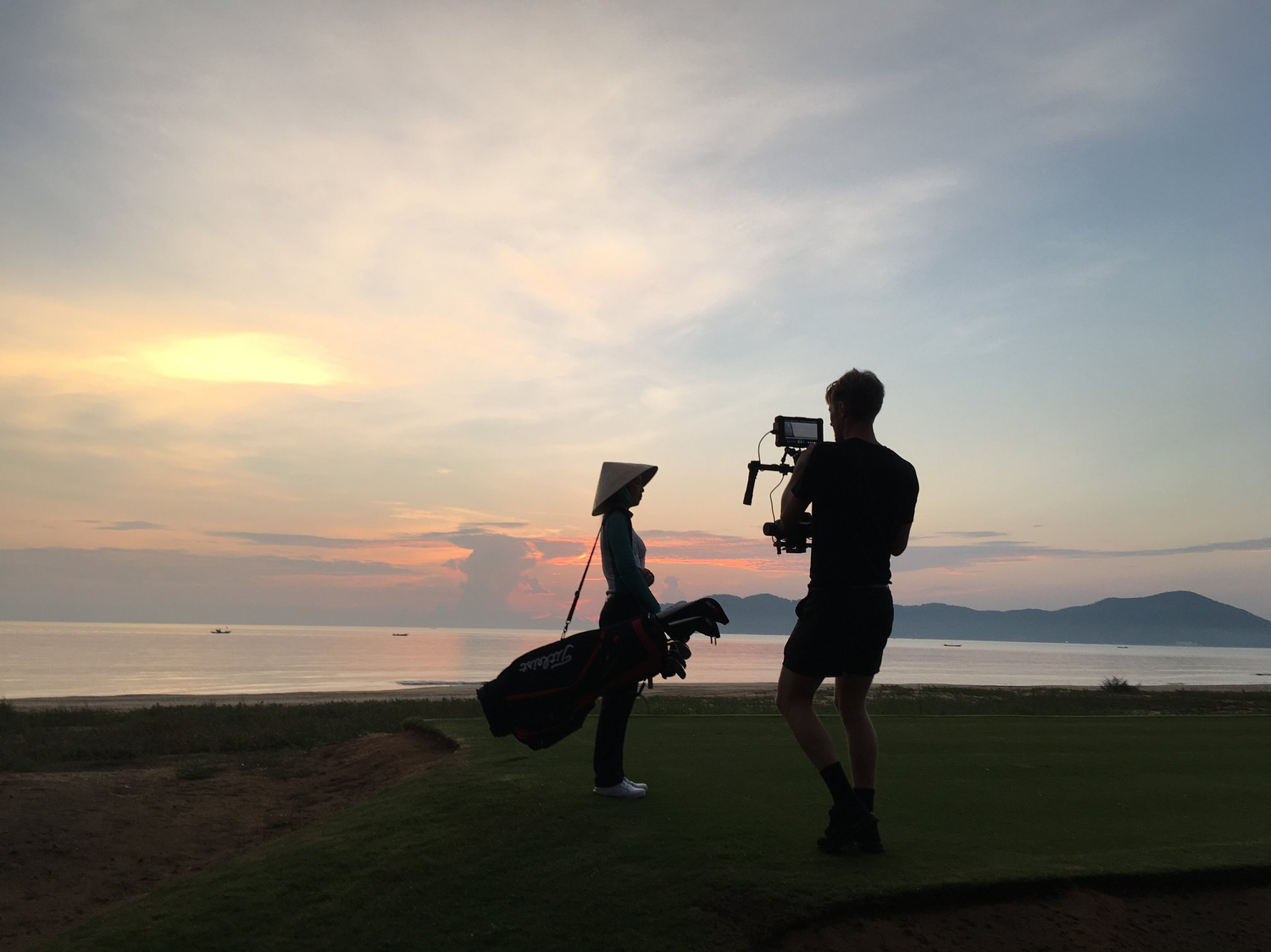
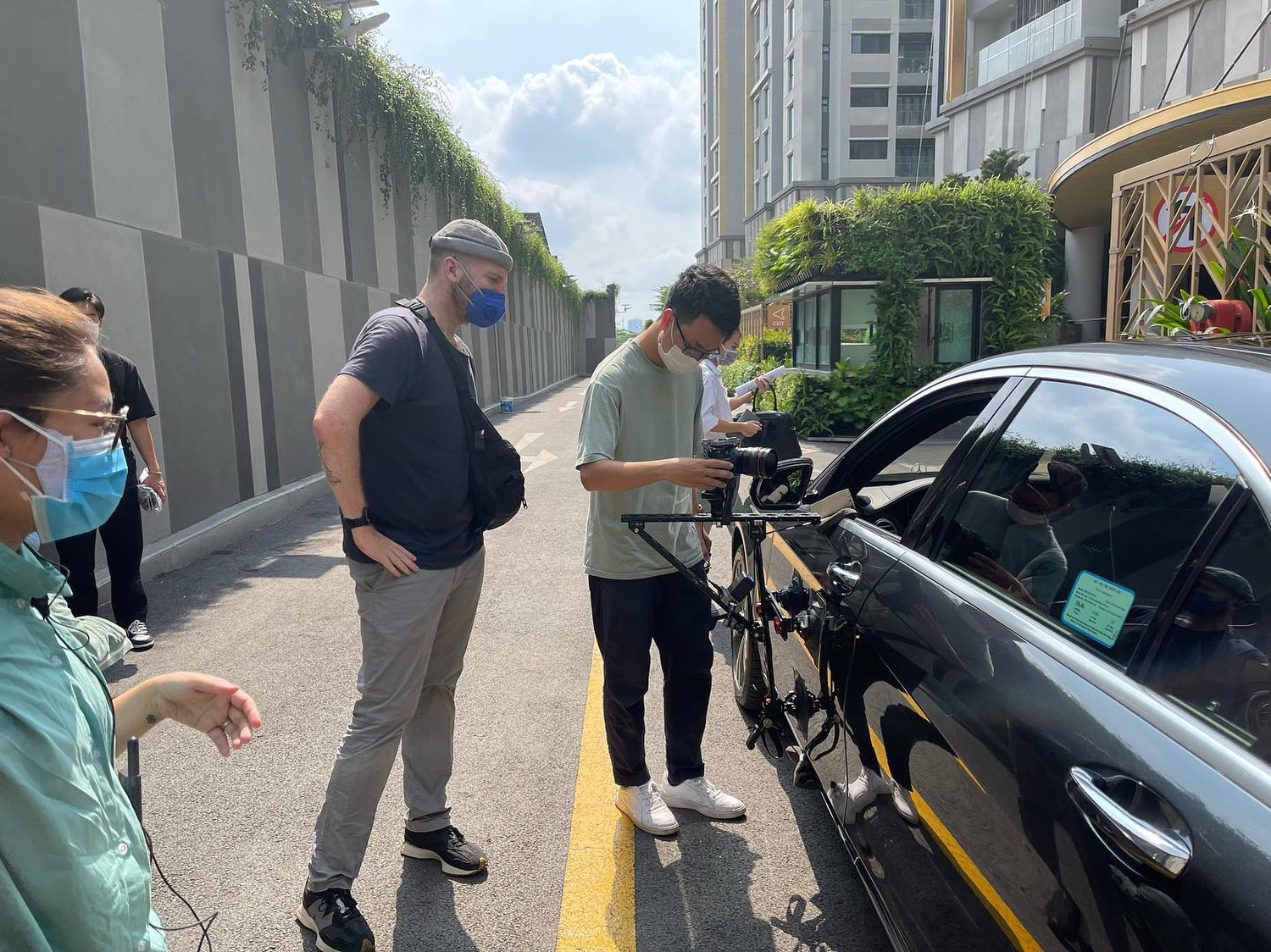
4. You Don’t Know What You Don’t Know
In your country, it might be easy to fly a drone if you have the right paperwork or film anywhere on the street. Here, you might need to hire an operator with a specific permit. It might be okay to film in certain places culturally, but it could be different here.
Having a local production team in Vietnam and asking the right questions in pre-production will save you dozens of headaches. Every country has its list of things that are easy and things that are difficult — and vice versa. Know what that list is right away, especially if you’re working on hotel drone footage, resort promotional videos, or corporate documentaries.
5. Gear and Equipment Rental
An interesting thing about Vietnam is that rental houses are plentiful these days, but not always stocked with the latest and greatest gear — so check ahead of time. You might need a very specific lighting setup that isn’t available here or a specific Arri that’s hard to find.
It’s also not always easy to get certain accessories you might need — things like specific wires, adapters, camera attachments, or rigging gear. Those smaller items can be surprisingly hard to source at the last minute. It’s always smart to have an early conversation with your Vietnam production company about what’s necessary to bring and what you can realistically rent locally.
Equipment is definitely cheaper to rent here and often comes with someone to help with technical issues or just to watch over it.
If you’re bringing in your own gear, check whether you need a carnet (temporary import/export permit). Sometimes smaller kits pass through easily, but larger productions or higher-value gear usually require proper documentation. Your local production team can help with carnet paperwork, customs coordination, and filming permits. Planning this part properly can save you from customs delays and unnecessary stress before the shoot even begins.
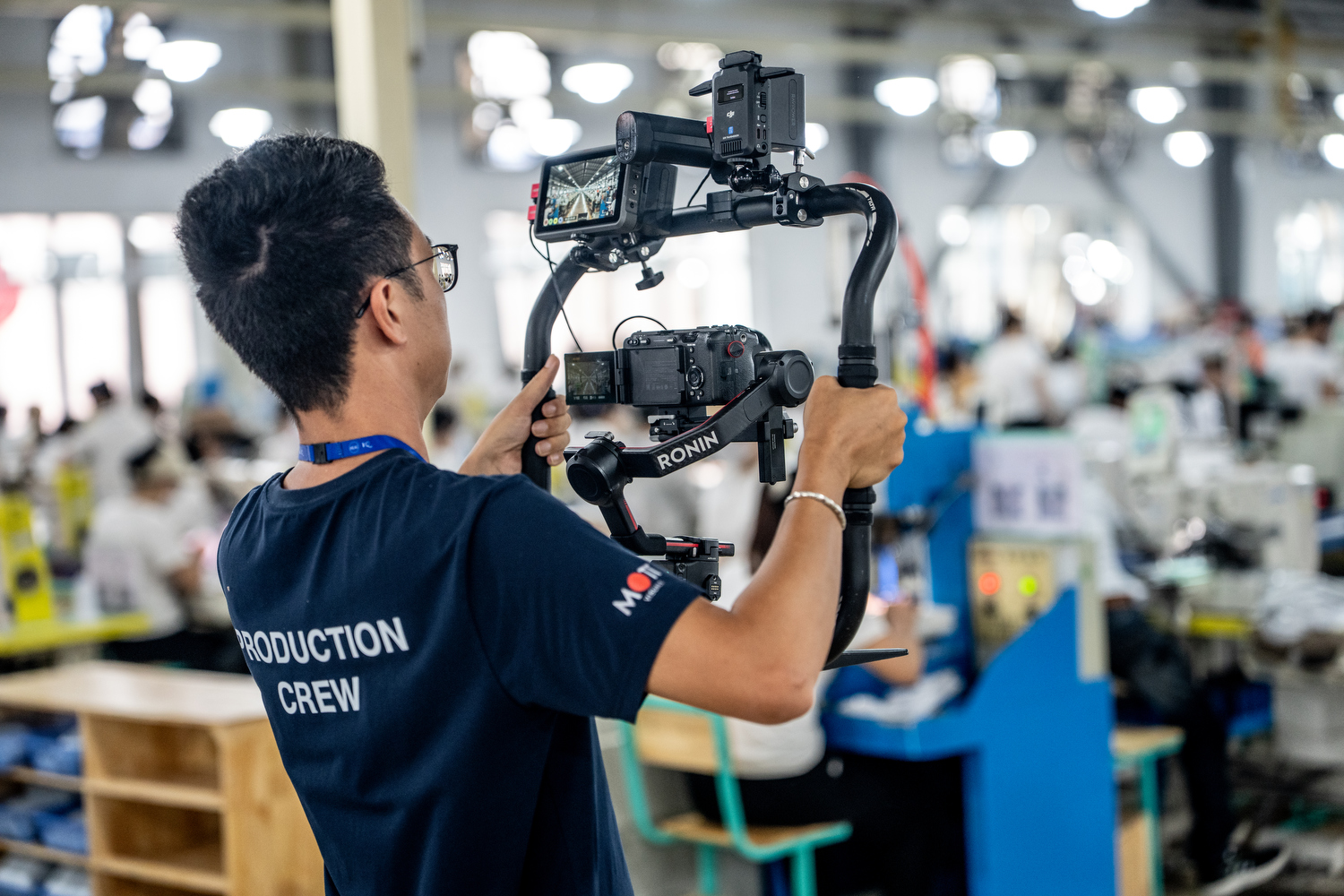
Final Thoughts
Vietnam is one of the most visually rich and rewarding places to shoot in Asia. You can find everything from luxury resorts and modern cities to mountain villages, rice fields, and tropical beaches — often all within a few hours of each other.
If you’re an ad agency or international brand planning a video production or commercial photography project in Vietnam, the key is working with the right local production company that understands both the local landscape and international expectations. Whether you’re producing a resort video, a corporate campaign, or a manufacturing shoot, the right team will make your project smoother, more efficient, and a lot more enjoyable.
Get in Touch
If you’re planning a video or photography production in Vietnam, my team at Mott Visuals has nearly two decades of experience producing content for hotels, resorts, brands, and NGOs across Asia.
Contact us to learn more or reach out to discuss your next project.
